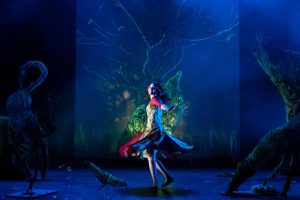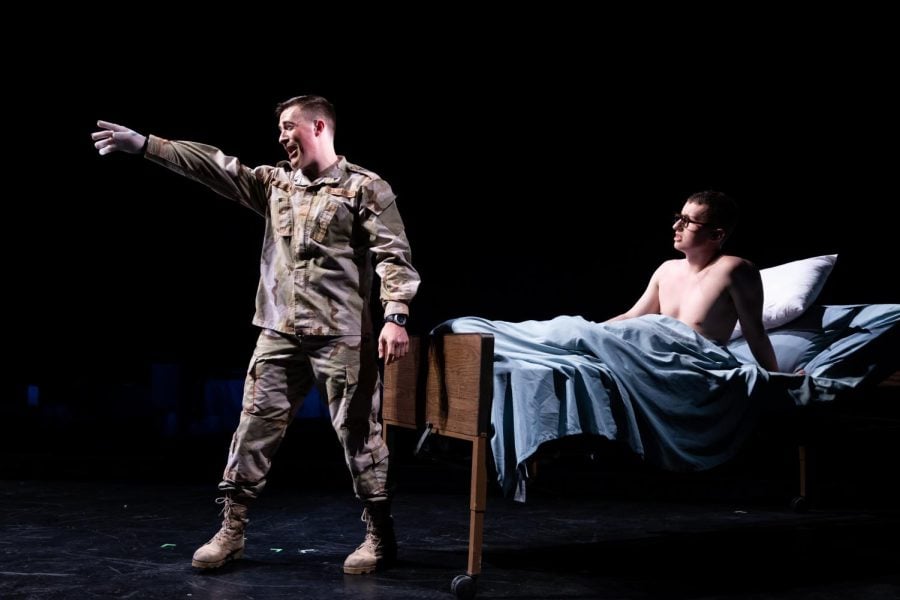Soldiers and a translator face ghosts, tigers and existential questions in “Bengal Tiger at the Baghdad Zoo”
Photo courtesy of Justin Barbin
Characters Tom and Kev have a conversation about the impacts the war has had on them.
May 3, 2022
An original production of “Bengal Tiger at the Baghdad Zoo” explored themes of war and religion at the Virginia Wadsworth Wirtz Center for the Performing Arts the weekends of April 22 and 28.
The play follows the story of Musa, an Iraqi translator, and two American soldiers in Baghdad in 2003. An accident at the zoo brings the three characters together in peculiar ways.
Hamid Dehghani, fourth-year MFA in directing student and “Bengal” director, said the play is a ghost story about war and religion. He said this story of war hit close to home for him, having experienced the Iran-Iraq War firsthand growing up. Dehghani said many Americans do not know the realities of war because they are not there on the ground where it happens.
“The American audience and people shouldn’t forget about war,” Dehghani said. “Whenever we forget, we repeat history again, and we repeat the same mistakes again. So we have to remind ourselves of these tragedies and these mistakes.”

The cast and crew also held many conversations about depicting culture and real people while preparing for the play. Communication freshman Abraham Deitz-Green, who plays Kev, said the actors worked to depict the impact of war as accurately as possible.
Deitz-Green said he felt a responsibility to tell the real story of what it means to be a soldier in a dangerous situation. To prepare for the role, he said he did a deep dive into the background of being a soldier.
“I think the research is important because it allows you to make sure … you’re not just falling into stereotypes and caricatures,” Deitz-Green said.
A language coach helped actors learn their Arabic lines. Communication fourth-year Rishi Varma, who plays Musa, said learning his Arabic lines was difficult because he had no prior experience with the language.
He also said the biggest challenge of preparing for the show was portraying the Middle East accurately.
“I think it came down to treating the story very carefully,” Varma said. “And always recognizing that we are entering this world, and we have to do it with justice.”
In the process, Dehghani said he had many conversations with artists, designers and the actors to explain cultural aspects of the Middle East and Islam in order to create an authentic piece.
However, he said he was proud to see the result of the collaboration process.
“It’s fun to learn throughout this process,” Deghani said, “to constantly try to learn from each other.”
Email: [email protected]
Twitter: ashley_yw_lee
Related Stories:
—Wirtz Center to premiere dark comedy “peerless” this weekend
—The 91st annual Waa-Mu Show returned to the mainstage with ‘kooky’ comedy ‘A Peculiar Inheritance’
—Hamid Dehghani’s production of ‘Eurydice’ tells a story of memory and love


